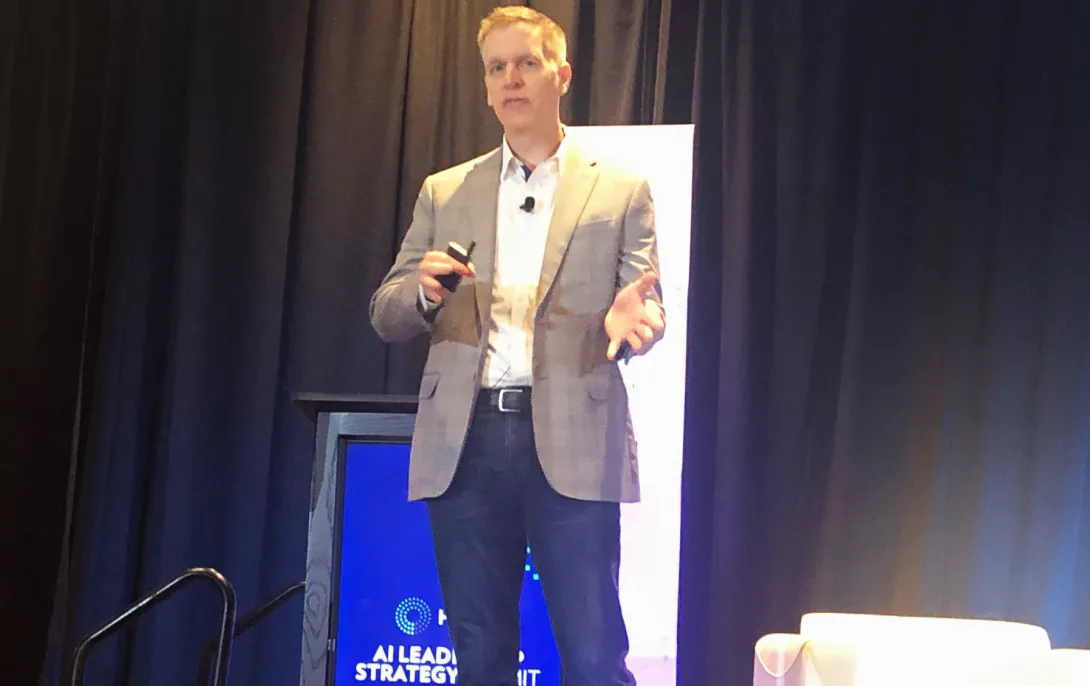
Thomas Osborne, CMO at Microsoft
Photo: Susan Morse/HFN
CHICAGO – How to gain the trust of employees in implementing AI and creating the right culture for innovation was part of several sessions at the HIMSS AI Leadership Strategy Summit in Chicago on Thursday.
Burnout has long been an issue for both physicians and nurses. Physicians spend 20 hours a week on paperwork, said Thomas Osborne, CMO at Microsoft and also a clinical professor at Stanford School of Medicine.
The physician shortage is expected to grow to more than 187,000, he said.
Automation and AI are seen as solutions.
"We did a study," Osborne said. "It's a myth that providers are against new tools and technology."
The way to gain trust and buy-in is to have solutions that effectively solve problems people want addressed, he said.
For some solutions, the ROI might not be there, said Rachini Moosavi, chief analytics officer for UNH Health. But the question needs to be asked whether the AI is being meaningfully used and helping clinicians, she said.
Email the writer: SMorse@himss.org